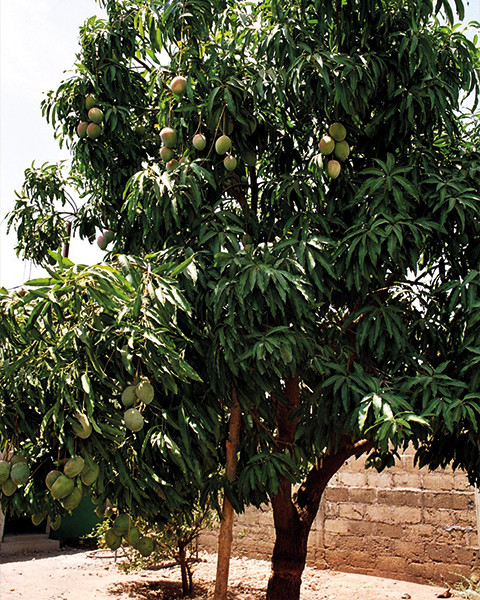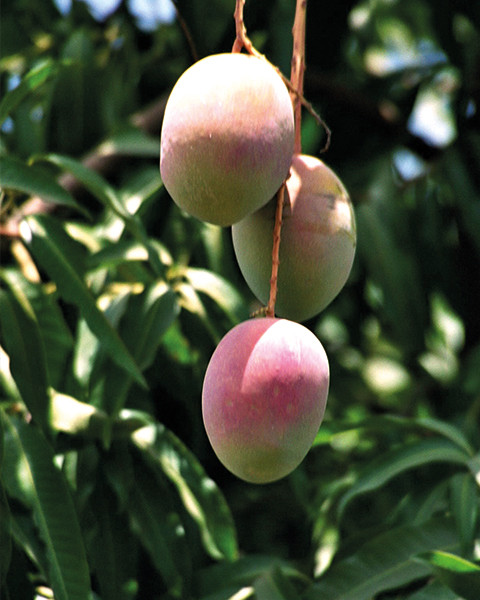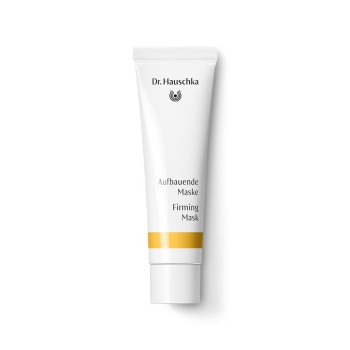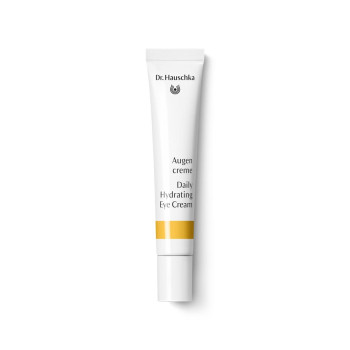First organic mango butter worldwide
Although mango butter is an important raw material for cosmetics manufacturers, it has never been available in organic quality. That is, until Dr. Hauschka set the wheels in motion for a raw materials project in India. Both the project and the raw material passed the testing stage, meaning that Dr. Hauschka will now use only organic mango butter for its products. Sourcing this valuable raw material in organic quality is expensive but Dr. Hauschka believes the cost is worthwhile.
Christine Ellinger – a raw materials purchaser at WALA Heilmittel GmbH, which produces Dr. Hauschka Skin Care products – is the driving force behind organic mango butter. WALA’s aim is to expand organic farming worldwide, i.e. farming without pesticides or artificial fertilisers. As Christine Ellinger says: “Organic farming benefits both people and their natural surroundings.” She found it hard to believe that, although mangoes were already being grown in ecologically certified quality, the fruit’s valuable stones were not being put to good use. As she explains: “Some of the organic mangoes on the market are sold as fresh fruit, but most of it reaches consumers in the form of juice or dried fruit.” This leaves the skin and the stone – and the stone is the very part of the fruit that interests Christine Ellinger, as the stones within contain valuable raw materials for cosmetics.
Organic mango butter – a processing project
Mangoes grow in many different parts of the world. Christine Ellinger travelled around different continents meeting potential business partners until she found the right one in 2008: Nanalal Satra, Managing Director of the Castor Products Company in India, which has already been producing organic cold-pressed castor oil for WALA for several years. “Nanalal Satra understood immediately what we needed”, says Christine Ellinger. In spite of this, it took some time to clear up the many questions associated with organic mango butter production. Christine Ellinger’s project was leading her into uncharted territory and there were many questions to be answered. For instance, how to extract the mango seeds from the mango stone. Or how to extract the mango butter from the seeds. Or how to ensure that the mango butter remains stable without using artificial preservatives? As Christine Ellinger reports: “In the beginning, we didn’t know what quantity of fruit was necessary to produce the amount of organic mango butter we required.” With a view to finding this out, the first processing attempts took place in 2009.
In order to obtain the mango butter, the stones first need to be dried in the sun for a number of days. Following this, the stones can be cut open by hand and the seeds removed for further drying. Quite a challenge, given that the rainy season begins shortly after the mango harvest. Because of this, it is usually necessary to dry some of the seats completely in ovens. In order to minimise the amount of non-renewable energy used, Nanalal Satra and WALA looked to solar energy. “We commissioned a study to ascertain the best way to dry seeds using solar energy”, says Christine Ellinger. As soon as all of the seeds are dry, they are sent by ship to Germany, where the valuable organic mango butter is extracted from them. WALA’s aim is to source the mango butter directly from India, so that a greater part of the value-adding process remains in the country. And even at this early stage, significant value has been added, given that the stones are no longer discarded or burnt, but are processed instead. The benefit for Nanalal Satra is that he can employ an extra 40 seasonal workers for the purpose of extracting the organic mango stones.
Mango butter – raw material with a melting texture
Mango butter has a similar consistency to cocoa butter. It nourishes the skin, providing it with various fatty acids and helping to keep it soft and supple. Mango butter also helps to reduce fine lines and is particularly effective at treating rough skin. It even provides light protection against UV rays. Mango butter is also edible and is used, among other things, to make chocolate.
These Dr. Hauschka products contain mango butter
Interview with Nanalal Satra, owner and managing director of Castor Products Company in India’s Kutch district and raw material supplier of mango butter





